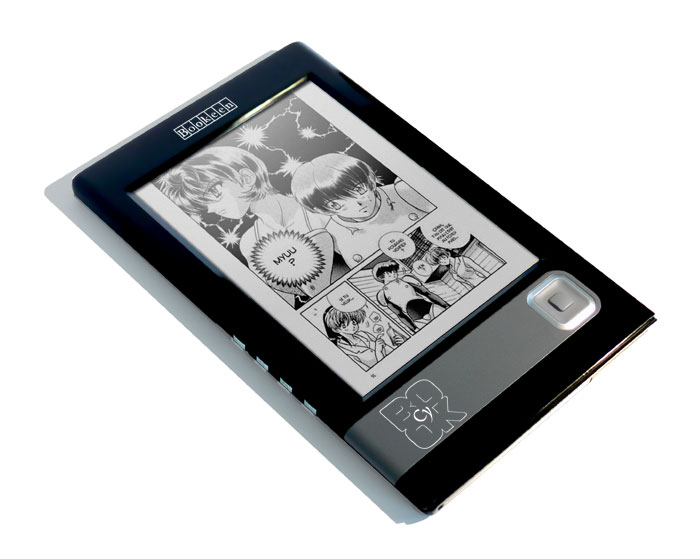Actually it only comes in a size that will power 25,000 homes, but hey, in Maine it would only take 20, or 30 to power the whole state. The manufacturer calls it a “battery” and not a reactor, since there’s no moving parts, and it doesn’t require an operator.
Nuke to the Future for the article about it. Here’s the website for Hyperion, the manufacturer.
OF SOUND AND VISION – The Online Portfolio of Alex Cherry
Cool digital art by Alex Cherry
Intolerance

Many of his titles are from songs (including Rage against the Machine, and Radiohead) and interpretations of said songs.
He also has a deviant art page where you can buy prints.
Simpler Times

The smell of woodsmoke
On the cold wind,
Reminds me of:
The potbellied stove
In my grandfather’s store.
Reminds me of:
Atomic Fireballs
Burning the inside of my cheeks.
Reminds me of:
Waking up at 2 AM,
To feed the fire
Before it goes out.
Reminds me of:
Simpler times
That weren’t–
Really.
Another thought on the Kindle (and E-Readers in general)
This post from Neil Gaiman’s Journal (Thanks from the future…) reminded me of another point against e-readers in general. When you buy and e-book, what happens to author’s signings, autographs, etc. I know most people don’t care, but many do, and that physical interaction with the author does have meaning. Yes I remember from the Times article–the first in my series on E-Readers (strange I didn’t mean for it to go there, but there you have it.)–that there might be more interaction in general, but all electronic, or from a distance.
So while authors may like the e-book idea for this reason, since it’s easier on them (although I think many do enjoy meeting their fans, and interacting with them (Wil Wheaton for example)), it’s a lousy deal for fans.
Bookeen – Cybook ePaper – the eBook reading device
 Bookeen – Cybook ePaper – the eBook reading device
Bookeen – Cybook ePaper – the eBook reading deviceThis e-book reader is much nicer looking, can read non-DRMed e-books (as well as DRMed ones), and a little cheaper than the Kindle. Still too expensive for my tastes, but it is more in the right direction.
(Three years of development and the Kindle is all Amazon could come up with, when they have models like this, and the Sony e-book reader? Wow.)
(Got this from the comments on Cory Doctorow’s article trashing the Kindle, over on BoingBoing.)
Amazon: Reinventing the Book | Newsweek.com
Amazon: Reinventing the Book | Newsweek.com
This is a great article (7 pages, so be prepared to spend some time on it.) on the future of the physical/paper book vs the electronic book. It’s mainly about Amazon’s new Kindle, but delves deeper into what reading may look like in 20-50 years, with books, and reader, and writers being interconnected.
It all sounds wonderful (to some people anyways), and I would love to be able to store a couple hundred books in a space the size of a single paperback (and wouldn’t my wife love that 😀 ), but while the price of the books are o.k. ($9.99 or less)(on second thought, maybe that is too expensive since you can get a paperback for $7.99 and the cost of digitizing a book is much less than that, $2-$4 may be a better price range here), I can’t bring myself to pay $400 for the reader, when I can get a laptop for that price. I think when the price of the reader drops to something like $99 (or even less), it may be more palatable to readers (myself included).
There’s, also the whole DRM encumberment going on which I find very absurd. If I buy a book, I’d like to be able to lend it to someone else, just like I can now, and maybe that’s the best argument for paper books right there.
Via Slashdot (Some good comments there, by the way)
This Revolution Could Be Televised On Fox
This Revolution Could Be Televised On Fox
What amazes amuses me is that, even with the lack of balls the Democrats are showing, people still think we live in a two-party system, and that voting works. Or that the Democrats (or Republicans) actually care about what the people think.
Australian researchers find hunger switch – washingtonpost.com
This’ll be the new fad in dieting in a couple of years.
Australian researchers find hunger switch – washingtonpost.com
A thing
The black ship strode through the charcoal night. It carried no cargo except the horrid crew, made up of the riffraff of many worlds. Big, small, short, tall, one-eyed, three-eyed, no-eyed… Dressed, and undressed in various costumes of their native worlds.
It criss-crossed the world bringing strangeness with it, and it had but one purpose on this night, and ran full speed for the bright lights of the nearest port.
The ship hit the shore, and the crew streamed down the gangplanks, and ran up the streets.
Everywhere could be heard the sound of fists banging on doors, and the cries of TRICK OR TREAT!!!!
It was a good night.
Happy Halloween, everyone.
More about Body Decay (Forensic Anthropology) than you ever wanted to know
Damn Interesting » The Remains of Doctor Bass
An article about the “Body Farm” of the University of Tennessee, in Knoxville, where Forensic Etymology, and Anthropology students (and FBI agents) study body decay. Interesting stuff, safe for work, but not for the terribly squeamish.
Maggots, MMMmmmmmmmm!